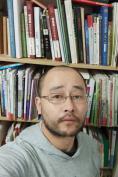Ultracold molecules offer unique opportunities to investigate ultracold chemistry, precision measurement,quantum simulation,and quantum dipolar gases. Starting from ultracold 23Na and 40K Bose-Fermi mixture, the Feshbach molecules can be created and the ground state molecules can be produced by stimulated adiabatic Raman passage. The 23Na and 40K have overlapping interspecies Feshbach resonances. This unique property offers the possibility to study ultracold controlled chemistry, i.e., a Feshbach molecule and an atom may react via exchange a K40 atom. The atom-exchange reaction is fully controlled and single reaction channel dominated, and can be employed to investigate the quantum effects in ultracold chemistry. The NaK ground state molecule is chemically stable. The collision between chemical stable molecule is not clear. Theoretical investigations suggest that the ground state molecule may undergo sticky collision and form long-lived collisional complex. We will investigate the sticky collision between the ground state molecules to uncover the effect of the sticky collision on the ground state molecule gases. A long-term goal of our lab is to investigate the prospects how to prepare quantum degenerate ground state molecule gases.
Related Publications
- Observation of magnetically tunable Feshbach resonances in ultracold 23Na40K + 40K collisions. Science 363, 261-264 (2019).
- Controlled state-to-state atom-exchange reaction in an ultracold atom–dimer mixture. Nature Physics 13, 699 (2017).
- Feshbach Loss Spectroscopy in an Ultracold 23Na and 40K Mixture. Physical Review A 96, 062705 (2017).




